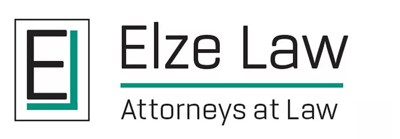LEASE ABSTRACTING
Definition
Lease abstracting in commercial real estate is the process of summarizing the most important elements of a commercial lease into one document. The main elements covered are rent, square footage, costs (net rent, additional rent, deposits), specific tenant rights (such as expansion rights and renewal rights), landlord rights (such as the right to relocate the tenant and right to terminate the lease), personal guarantees, and timelines (expiry date, and notice dates).
Purpose of Lease Abstracting
Regardless of how mortgage professionals are involved in commercial real estate transactions, they are likely to find that leases are the foundation of the asset purchased. Whether they are retail, office or industrial, leases often are at the center of the income stream feeding the property.
A review of the complete lease file therefore is not only warranted but also an essential component of the due-diligence process. It is vital that each lease is reviewed thoroughly and abstracted.
A lease abstract is a summary of key financial, business and legal information in a commercial lease. In addition to summarizing the standard lease provisions, it should bring to the reader’s attention any unusual lease provisions, financial obligations and other important issues.
The abstract’s level of detail depends on whether it will be reviewed for acquisition, management or a merger, or for underwriting and lending purposes. It should at least: contain basic lease information; identify the landlord and tenant; describe the premises and square footage; and give the lease terms and expiration date.
Lease Considerations
Each party involved in a transaction must obtain (or in some cases, confirm) the financial information in the lease. Critical financial components that affect the transaction include:
Rent and renewal rent;
Security deposits;
Late fees and interest;
Real estate taxes; and
Common-area-maintenance costs.
Provisions detailed within the lease can impact the income stream. For example, what is specifically included or excluded in the gross sales will influence the percentage rent. Exclusions and inclusions in the maintenance provision impact operating expenses.
Understanding and accounting for the number and type of options available to the tenant or landlord is of utmost importance. It could significantly alter the value of the assets.
Some questions to ask are:
Can the tenant renew the lease?
May the tenant expand, contract or relocate the premises? Does the tenant have a right of first refusal to purchase the property?
Most important, can the tenant (or landlord) terminate the lease?
Retail Leases
Retail leases have their own set of lease provisions that can impact the transaction. Retail-specific provisions typically reviewed and abstracted include:
Gross sales
Sales reporting
Signage and radius restrictions
Exclusivities
Cotenancy
Required business hours
A lender or investment bank will be particularly interested in understanding the lease’s casualty and condemnation provisions, the subordination and nondisturbance language, the estoppel certificate requests and the insurance requirements. Although many leases contain subordination clauses, some may be drafted insufficiently for the first priority lender. Upon review, many lenders will even require an amendment to the lease to impose their own preferred subordination and nondisturbance language.
There are many other provisions of interest to most buyers and current owners. For example:
Is the tenant limited in its use of the premises?
Does the tenant have an exclusive use that no other tenants may share?
What are the landlord’s rights in auditing the tenant’s books to confirm percentage rent?
What happens if the tenant goes into default?
Is the tenant’s obligation to pay rent dependent upon other tenants being open for business?
Why Hire Elze Law
Reviewing a complete lease file is often more complicated and time intensive than first meets the eye. There is no substitute for looking over every document. Important lease provisions are often hidden (sometimes purposely) in unexpected places. Additionally, sometimes lease provisions are found in documents or agreements outside the lease, such as riders, side letters or unilateral notice letters.
Like much of the due-diligence process, lease abstracting can be tedious, painstaking work. But before any decisions about the acquisition, management or underwriting of an asset, a complete understanding of the underlying asset should be obtained. Without a detailed and thorough lease abstract, this understanding can be difficult to achieve.
If you have questions or would like to discuss any aspect of Lease Abstraction with us, don’t hesitate to contact us.
GET IN TOUCH
Fill out this form to request a consultation.
Error: Contact form not found.

